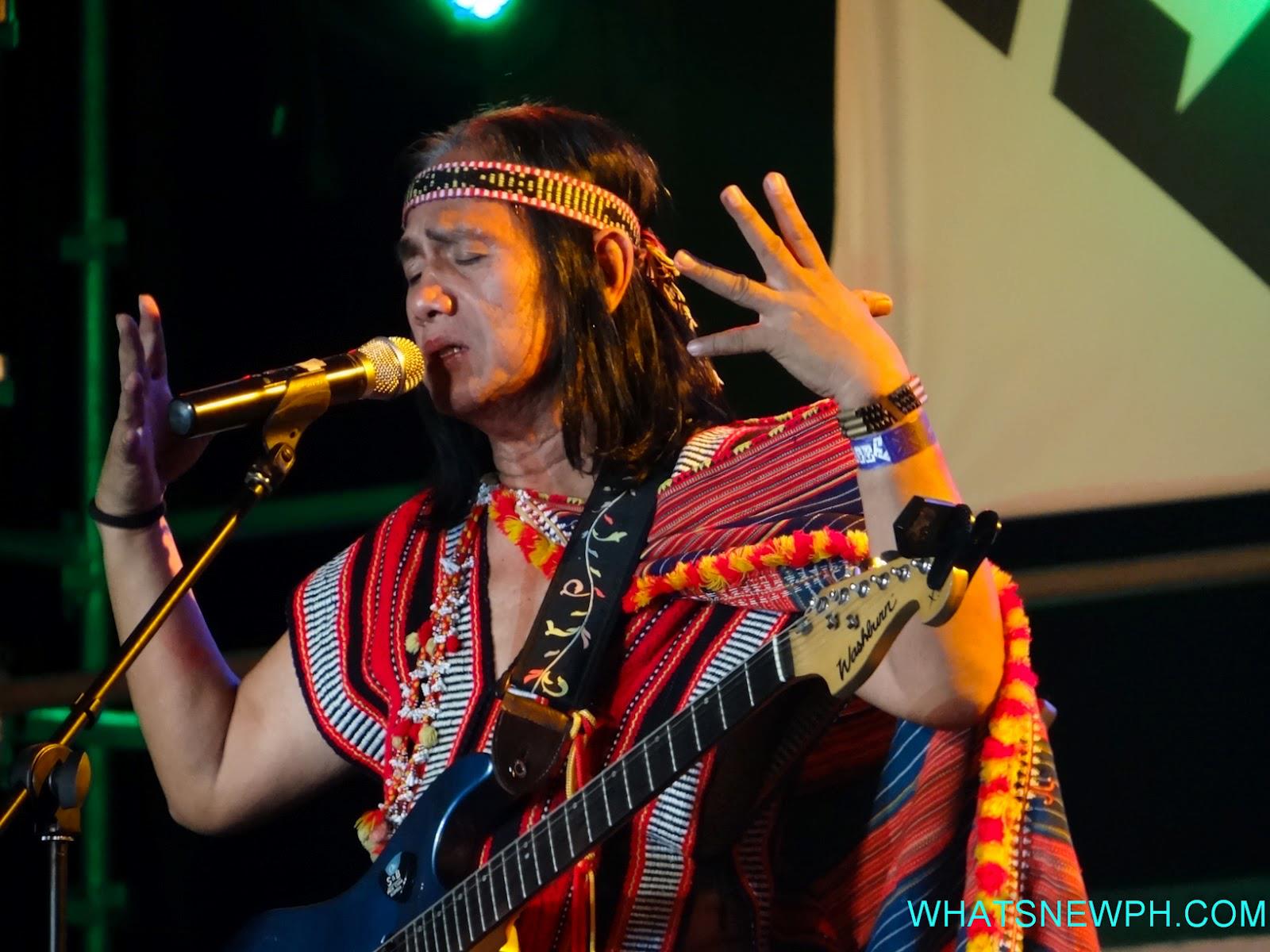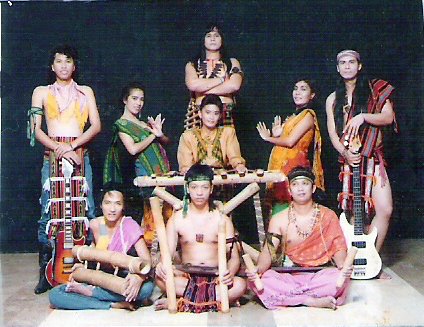Emil Sanglay
Neo-Ethnic Rock Warrior and Filipino Cultural Patriot
Multi-Awarded Legendary Music Artist and Leader of the Pen Pen Band

Emilio “Emil” Sanglay is a passionate and legendary composer-singer and arranger in the Philippines who has received many awards for his pioneering neo-ethnic Filipino singing and music. His musical style and that of the band Pen Pen which he leads, integrates and harmonises the sounds of Filipino indigenous instruments with modern pop music.
A passionate visionary, he revitalized Pen Pen with new members. Mr Sanglay and Pen Pen created a new repertoire of pop, rock and alternative music. The spectrum of this experimentalist repertoire ranged from the fusion of northern & southern Philippine cultural tunes and rhythms, art rock, soft & hard rock, atonal, new age, oriental to neo-ethnic rock music.
His first big song was the iconic ever popular “Pen-Pen De Sarapen” in 1978, released by Vicor Records. Because of the supremacy of high technology games in this new generation which has brought with it western globalised culture, Emil Sanglay revived this children’s song to bring back endangered Filipino traditional games such as “Taguan, Luksong Tinik, Luksong Baka, Sipa, Bahay-bahayan, Patintero, Tumbang-Preso” and many more.
He introduced and popularised neo-ethnic music into the Philippines in the 1970s and 1980s. He was a winner and finalist in many Metropop music festivals. He was also a national Philippine representative to the ASEAN song festival in Bangkok, Thailand in the 1980s and a top semifinalist in the USA song writing contest 2001.
More recently he was chosen by the Office of the Governor of Pangasinan Province – the largest province by population in the Ilocos Region of northwest Philippines – as a recipient of the 2014 ASNA Awards. This is also known as “The Outstanding Pangasinense Award” as a tribute to people who have excelled in their chosen profession or vocation.
Many of his and Pen Pen’s songs have a mixture of traditional cultural, spiritual, environmental, social justice and political messages.
Some of these notable songs are:
- Iligtas Natin Ang Mundo (Let Us Save The Earth):
An environmental song which won a prestigious place amongst the top 100 of the USA song writing entries in 2001. - Anting-anting (Amulet):
Winner in the professional division of the 8th Metro Manila Popular Music Festival. This song seeks out truth, justice, equality and unity for all nations. - Uhaw Na Lupa (Bewildered World)
- Pinagpalang Lupa (Blessed Land):
A song of praise and deliverance where Emil Sanglay respectfully channels the combined forces of the world’s major religions to call for peace and unity amongst the religions and nations of the world. - Hatol ng Langit (Judgement of Heaven)
- Sigaw ng Bundok (Cry of the Mountain):
This is about the clash of cultures in the Philippines between the mountain people and the ruling class of the lowlands. Appropriation of ethnic mountain lands, as well as disrespect of indigenous cultural beliefs and traditions are significant aspects for the resulting disharmony and the consequential “Cry of the Mountain”. This leads one to consider that land reform and reconciliation between different ethnic and cultural groups within the Philippines would be powerful mechanisms for restoring a more balanced social harmony - Sabungan (Cockfight):
The big fight over beliefs, principles and ideologies relating to the political ‘Left’ and ‘Right’. This song received a nomination in the First Awit Awards from the Philippines Association of the Records Industry for Best Folk Popular Vocal Performance. The photo above shows Emil on stage with hand raised singing Sabungan. - Awit Pambata (Songs for The Underprivileged (Children)):
For the voiceless special children who are underprivileged, as well as mentally and physically disadvantaged, who are all too often ignored, forgotten or disregarded in the mad rush of modern life. - Bilanggo (Prodigal Son):
About a son who is a victim of poverty, ignorance, the law, misjudgement and societal misconceptions. - Botika Sa Paso (Herbal Medicine Song)
- Barangay Tagay (Grassroot Traditional Politicians)
- Hi-Tek (High Technology Song)
In addition to this he was also one of the main cast for “Lapu-lapu”, a multilingual neo-ethno classical-rock opera. He is also currently an instructor for voice, guitar and ethnic/world music.

Emil Sanglay’s and Pen Pen’s innovative contribution to Filipino musical heritage is very significant as it has demonstrated the spirit of Filipino culture through the creation of a new ethnic pop rock genre.
The following paraphrase from the “Reverberation.com” website is of particular interest in revealing the spirit of the revitalised Pen Pen band which Emil Sanglay has carefully cultivated:
Pen Pen returns with a mission to elevate and uplift the level of consciousness of this new age with harmony through their unconventional music. Pen Pen encourages aspirations towards international unity and natural laws: they remind all Filipinos of the adherence to their culture and traditions, the propagation of universal love for all mankind and all the creations, whilst contributing to the care of environment and advocating for social relevance and reconciliation.
Emil Sanglay wants to change society by appealing to the spirit of humanity. He is a spiritualist, which resonates clearly in his music. In regard to lawmakers who undertake wrongful deeds, Emil once said “I feel we can change society” by appealing to all those who implement the law to have a holy retreat of some sort to “revive their humanity”. Positive reflection upon one’s beliefs and actions is a good activity for all humanity, whatever a person’s social status, culture or religion. Consequently, this spiritual wisdom mentioned by Emil would be particularly beneficial for leaders – wherever they may be in the world – who have a special obligation and greater responsibility to demonstrate the fairness of the law and always strive for local, national and international unity through upholding the principles of mutual respect, social justice and care for the environment which can bring about greater positive changes in society.
Source: Radyo Filipino Australia
